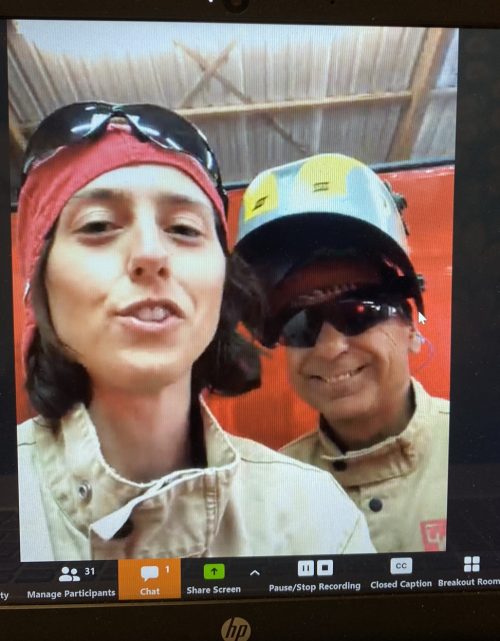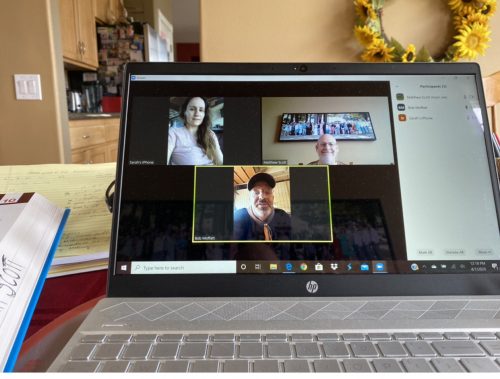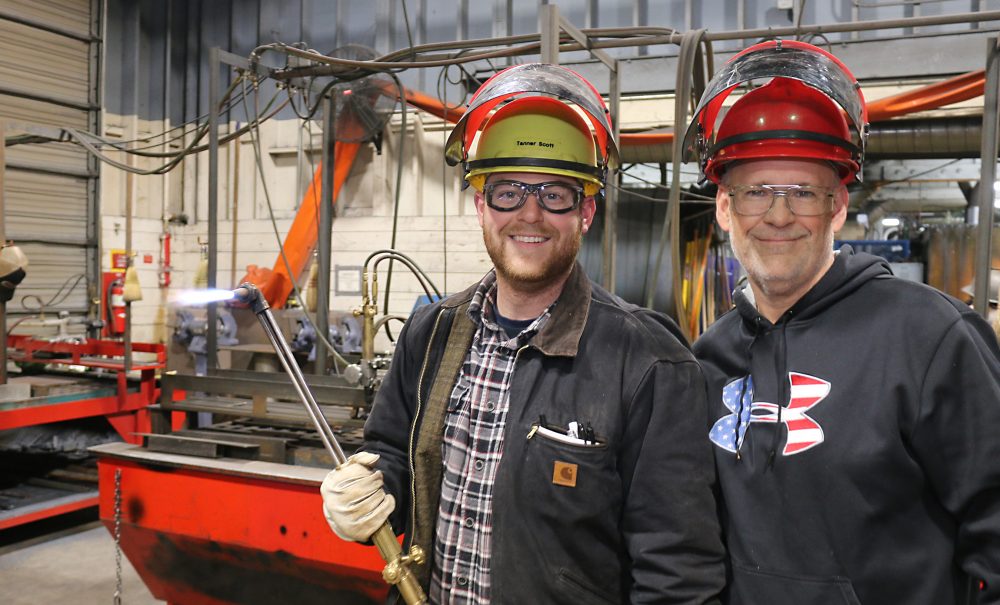This content was published: June 8, 2020. Phone numbers, email addresses, and other information may have changed.
Profiles From a Distance: Welding’s Matt Scott turns panic into innovation
Photos and story by Alfredo V. Moreno
When COVID-19 safety concerns forced Portland Community College to move instruction to virtual platforms, the college’s acclaimed career-technical education (CTE) programs faced some of the most daunting challenges. Face-to-face, hands-on instruction is fundamental for the vast majority of these programs, which produce highly trained, in-demand employees for local, regional, and national industries.
One of the longest-standing CTE offerings is the Welding Technology Program at the Rock Creek Campus, and it is among those most affected by the rapid transition to remote learning. Welding instructors like Matt Scott, however, have put their creativity and ingenuity to work to keep students engaged and progressing toward their certification or degree.
Scott, who started his welding career at age 18 and began teaching at PCC in 1993, shared his story and experience over the past two months during this historic conversion:
What made you decide to get into teaching?

Mariana Ludmer and George Rolla, co-owners of California Welding Institute, talk to PCC’s Welding Technology Program students remotely.
Matt Scott: Teaching has always interested me because of the idea of helping people. I jumped at the opportunity to be part of the community’s college because it’s an amazing way to totally change peoples lives. There’s nothing more rewarding than when students come into class with limited skills and leave ready to be gainfully employed. This is a life changing experience for them.
What was your first reaction when it became clear that PCC would have to move all of its instruction to a remote learning model?
Scott: Panic! How do you teach a hands-on skill remotely? Since the in-person classes were cancelled, we moved forward with teaching our lecture classes. The panic, however, is based on the idea that we have always had the shop available to review the lecture and theory portion of class in a practical manner.
How has your curriculum changed?
Scott: PowerPoints, videos, and discussions is how I have adapted our curriculum for this COVID-19 event. However, my greatest obstacle teaching Welding 101 still remains – not being able to offer my students hands-on experiences with the equipment after we discuss the theoretical aspects of each process.
So how have you dealt with that challenge?
Scott: Because this incredibly important hands-on component is missing, I wanted to bring a little life into my class. I decided the best way to do this would be to reach out to other welding professionals around the country to see if they would be willing to be a guest speaker for my class via Zoom. This has turned out to be an amazing experience in allowing my students to connect with the welding theory first-hand and engage with the guest speakers’ presentations.
What kinds of speakers have you had so far?
Scott: I have discovered that being able to take my students virtually to Cowley College in Arkansas City, Kan., with Bob Moffatt and Riverside, Calif., with Mariana Ludmer and George Rolla, who are the owners of California Welding Institute, has been an amazing experience for the students. During my fifth week of distance learning, I scheduled Sarah Stork, a metal artist out of Austin, Texas to talk about her career path, how she competed in SkillsUSA, and her experience being featured in the welding textbook we use. I also have other local speakers and PCC alumni scheduled to speak as well. It’s a unique opportunity to get my students connected with others in the welding field, as well as allowing for a more interactive class time.
Have there been any silver linings to this experience for you?

Metal artist Sarah Stork, Cowley College welding instructor Bob Moffatt and Scott in a planning meeting.
Scott: The silver lining in all of this is time. We now have the time to take a deep dive into reviewing and revising all of our curriculum. We are also moving into new territory by creating instructional videos for our students to view in class as well as remotely. All of this combined with our scheduled weld shop renovations this summer positions the college as a national leader in welding education.
Based on your experience during this unprecedented time, what tips would you share with faculty throughout the college?
Scott: Reach out! The welding department has been having virtual meetings with Rogue Community College to discuss teaching strategies and, as I mentioned, we have connected with our industry experts who have been great resources.
I have been overwhelmed by the kindness and willingness of our welding community. These individuals have stepped up and given their time and expertise during this difficult period in order to bring life into my online classroom.

